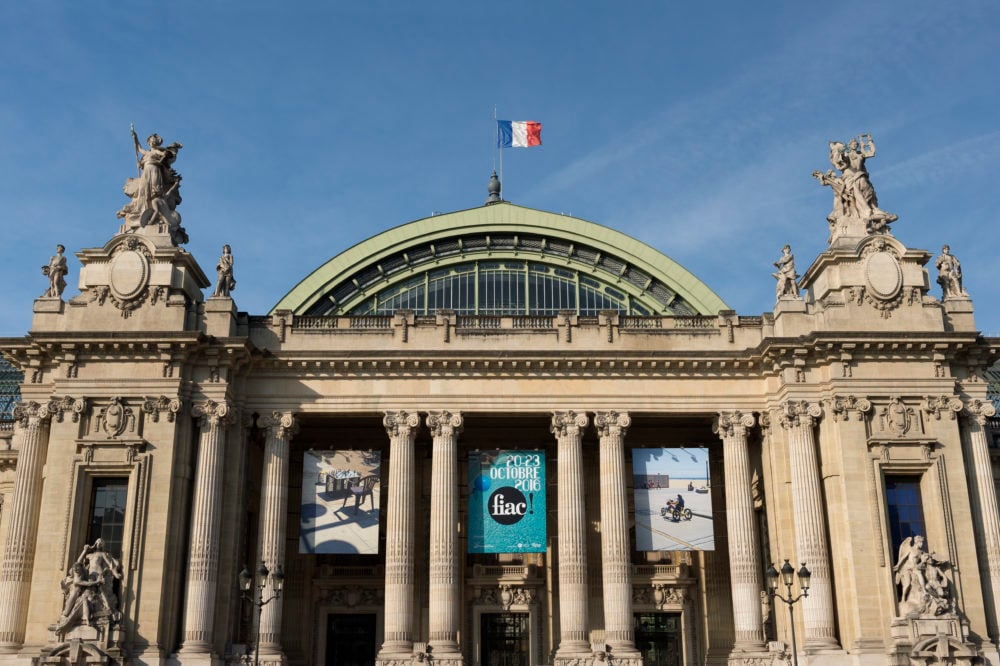Politics
How Will Next Year’s French Elections Affect the Art Market?
Art experts weigh in on the implications of possibly removing the French 'wealth tax'.

Art experts weigh in on the implications of possibly removing the French 'wealth tax'.

France will choose a winner Sunday in a contested race for the center-right Republican party’s nomination in the 2017 presidential election. The winner of Sunday’s vote is broadly favored to become the next leader of France, so actors in the French art market are looking at how the candidate’s platforms could end up impacting their work.
Having eliminated the come-back of former President Nicolas Sarkozy in the first round of voting last Sunday, French voters will now choose between two former prime ministers—Alain Juppé, the 71-year-old mayor of Bordeaux, and François Fillon, who surged ahead of competitors to take 44 percent of the votes in the first round.
While arts and culture have not been central themes in the primary campaign, the economic platforms of Juppé and Fillon could have a significant impact on France’s art market.
François Hollande’s popularity is at historic lows, and no alternative candidate has emerged from the left or center who would appear capable of besting far-right Marine Le Pen’s expected score of 25 percent in the first round of the 2017 presidential election.
That the center-right candidate should win the Presidency is seen as the most likely scenario, as moderates and leftists would rally around Juppé or Fillon in an effort to block Le Pen in the second round.
Both Juppé and Fillon have said they would do away France’s “solidarity tax” on wealth—an annual tax currently fixed at 0.5 to 1.5 percent of any household net-worth over $1.3 million. The tax has been a perennial source of controversy since it was implemented by François Mitterrand in 1982, with critics saying it encourages the flight of wealthy households from the country.
Encouraging French tax exiles to bring their fortunes back to France seems like an enticing possibility for the art market—but removing the wealth tax could also have its drawbacks.
“We know that many wealthy French people are not happy having to move back and forth to keep a tax residence in Belgium or the UK, for example,” said the curator and art advisor Laurence Dreyfus. “But governments from the right have come in before, and none of the wealthy families I know of who left during the Mitterrand years actually came back.”

Curator and art advisor Laurence Dreyfus. Photo: Stéphance de Bourgies, courtesy Laurence Dreyfus.
Meanwhile, removing the wealth tax would take away a fiscal incentive that makes art a more attractive investment for families.
French tax law does not require households to include art objects when calculating their net worth. High-end collectors can see massive reductions in their wealth tax when they buy expensive paintings, and even the middle-market for art sees a boost, as many households will regularly invest in art to keep from crossing the 1.3 million threshold and having to declare.
“There’s a psychological aspect to the wealth tax,” said the Paris-based art consultant Delphine Brochand. “Many people prefer not to stay under the taxman’s radar when it comes to their net worth.”
Brochand points out, however, that removing the wealth tax would only take away one of many fiscal incentives for purchasing art in France.
The VAT for buying and selling art is fixed at 6.5 percent in France, as opposed to 20 for most other goods. Collectors who hold onto a piece for more than 22 years are also exonerated from paying any capital gains tax—meaning a well-chosen painting could grow exponentially in value and still only be subject to the VAT at the time of sale.
Neither Juppé nor Fillon has made mention of eliminating these tax benefits, which contribute immensely to propping up the French market, particularly in contemporary art.
Galleries and other private actors in the art market—who are primarily small and medium enterprises—can broadly expect to benefit from reforms proposed by the candidates to France’s strict labor laws, according to Delphine Brochand.

Art advisor Delphine Brochand.
Both Juppé and Fillon have proposed reforms to the state-mandated terms of workers’ contracts that make it extremely difficult for businesses to fire an employee.
“True posts in the art market are now reserved only for the most essential functions,” said Brochand. “Last time one of my staff members left I decided to use an external contractor because it seemed to be like too much of a risk to replace her.”
Juppé and Fillon have both proposed strategies that would make it easier to lay off employees, and have also promised to reduce payroll taxes.
Both candidates have promised to make steep cuts to public spending, but neither has said how this would impact state support for arts and culture.
Alain Juppé has said simply that the state’s policy toward arts and culture “needs a purpose and a limit.” He has said he would raise the limits on tax credits for businesses who sponsor contemporary art, and is interested in other ways to mobilizing private and institutional actors to support the arts.
“Looking at what Juppé has done as Mayor of Bordeaux, it isn’t so promising,” said Stéphane Corréard, a curator who has managed art forums including the Salon de Montrouge. “There are not really any great museums to speak of, and the CAPC contemporary art center is now far from the international image it had acquired under the former mayor.”

Stéphane Corréard. Photo via Twitter
While François Fillon has promised €100 billion in spending cuts during his potential five-year mandate, he has also promised a €2-billion plan to restore France’s monuments and art objects.
For Corréad, both candidates are likely to continue ceding responsibility for public support to the arts to private actors—a policy trend of the Hollande presidency that he feels is out of step with traditional socialist priorities.
“When you grant major tax credits to businesses for supporting art, that is the same amount of public support as if you just used the tax money,” said Corréad. “But when you do it this way, the business is in control, and their particular priorities for art are met instead of moving forward with a public strategy.”
“I don’t think that a center-right government will depart from the current line: globalized, elite art,” said Corread.